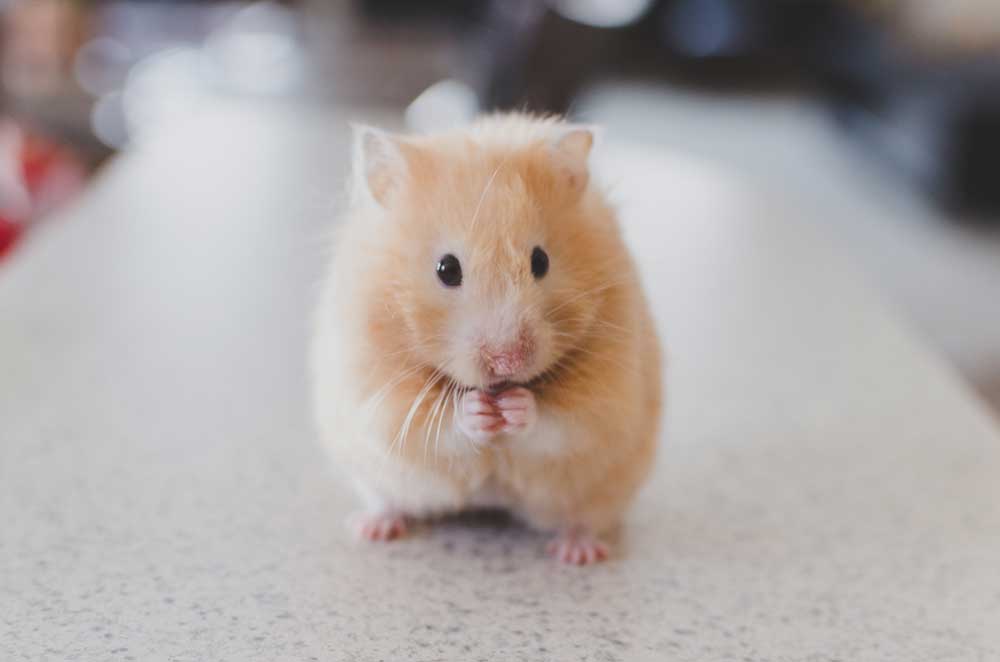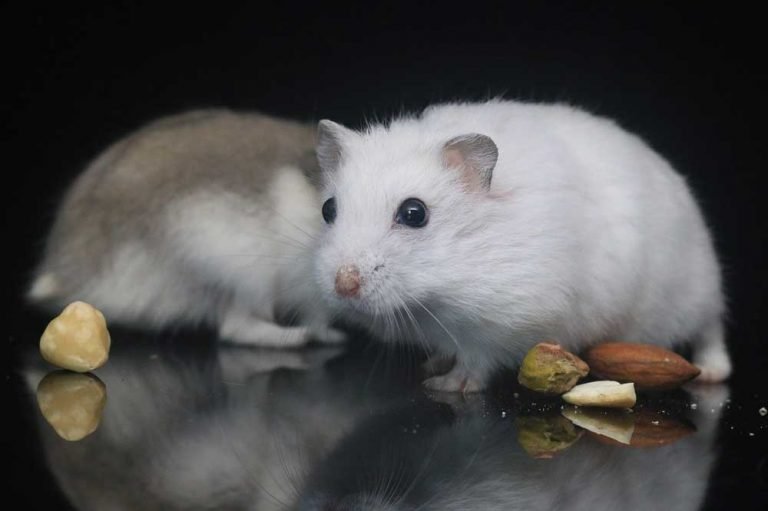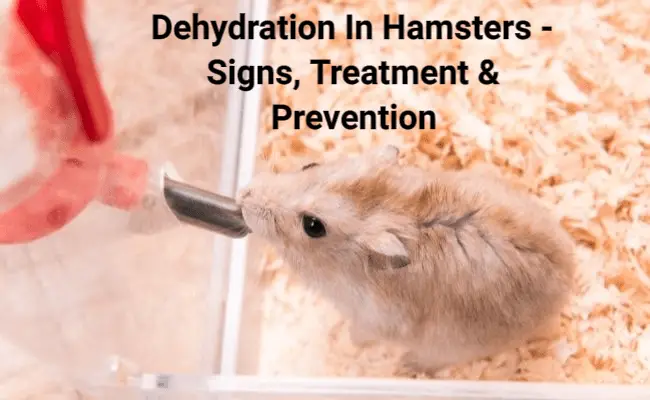Why Is My Hamster So Hyper?
Hamsters are friendly pets that are loved by many families. They are small and fascinating.
Naturally, hamsters are very active. They are usually referred to as nocturnal because they are more alert and active at night compared to during the day time.
They will play for 3-4 hours at night, happily running around their cage while sleeping almost all day.
If you just got a new hamster who is excessively active or your pet has become more active all of a sudden, you may be wondering whether that is normal or even why they are acting that way.
Keep reading to find out more.
Why is my hamster so hyper?
Hamsters are very active and their nature can be confused as them being unusually hyper. However, sometimes your pet may be overactive and have behaviors like restlessness, running on their wheels faster than normal, climbing up and down their cages, or they may seem jumpy and very alert. Reasons behind these kinds of behaviors are age, boredom, stress, and the size of the space that they live in.
Reasons behind your hamster being hyper
Although hamsters are normally very active, sometimes there could be some triggers making them more active leading to hyperactivity in your pet.
Reasons why your hamster is hyper include:
Stress
Hamsters are prey animals and they are always alert in case of predators. This makes them easily stressed out by the slightest of movements and noises.
Being neat and with tidy arrangements in their living areas where they have separate spaces for living, playing, and toileting, hamsters get stressed if their cages are not clean too.
A stressed guinea pig will become hyper. They will keep moving around, run on their wheels faster, or climb up and down their cages restlessly.
Boredom
Hamsters being very active means that they also get bored quite fast. They could become bored due to a lack of exercise or mental stimulation.
A bored hamster will be hyper and destructive. They will begin chewing on their cage bars, plot to escape or even become aggressive towards you.
Space
Hamsters require a larger cage to move around without any problems. A small space, and mostly the cages some are brought home with, will frustrate your pet.
They could overgrow the cages or just simply need a larger space to exercise in causing them to be hyper out of frustration.
Age
Age is one factor that you cannot control. Younger hamsters are more energetic compared to older ones.
This makes them need to use up the energy somewhere which leads to them being hyper and more active.
What to do if your hamster is hyper?
If your hamster is hyper, you can do various things about it like:
Keep them occupied
If your pet is acting hyper, it could be out of boredom. To prevent this, try to keep them busy and entertained.
You should ensure that your pet is playing and exercising like they are supposed to. Hamsters require daily exercises to stay healthy.
They are very energetic and they will require an activity to use all their energy on. Playing with toys is a good way of letting it out.
You can buy them a running wheel or ball if they don’t have one. If they already do, it’s easy for them to get bored by playing with the same thing all the time.
Make it more interesting by switching it up. For instance, if they have a wodent wheel you can change it with a saucer wheel.
Opt for safer wheel options that are solid with no ladder rungs.
You should also let your pet out to run around an enclosed area of the house. If they are going outdoors, the place should also be secluded to avoid losing your tiny pet.
Always keep an eye on them as they are playing.
Another way of keeping them occupied is by offering them chew toys. Hamsters need to chew frequently to keep their teeth in the right size.
If their teeth overgrow, they become painful and hurt the roof of their mouths. When you notice a hyper hamster constantly chewing on cage bars, provide them with a chew toy instead because they could hurt their teeth.
You can give them chewing blocks made of safe woods like applewood. You can even offer them crunchy foods to chew on like carrots.
Ensure their cage is clean
Hamsters are clean animals and dirty living environments will stress them out. Make sure that you clean their cage regularly.
Daily spot cleaning and weekly full cleaning is ideal to ensure your pet’s living conditions are safe. You can also rearrange their cage arrangement now and then to make it look new and different.
The cage should also be placed in a quiet area with no noise or threat of other pets coming nearby.
Provide a bigger living space
Provide your pet hamster a cage that is large enough for them. Sometimes they can outgrow a space and get frustrated from the lack of space.
It’s always said that if you are unsure of how large a cage you should get, go for a bigger one. Create tunnels and levels in the cage for them to run through and climb for mental stimulation.
Hamsters love burrowing too, so hide their foods around the cage for them to search and dig for it. This will be a good and mentally stimulating exercise at the same time.
See a vet
Sometimes your pet could be hyper due to an underlying condition that you can’t figure out by yourself. It’s advisable to see your vet so that they will examine what could be wrong.
Conclusion
Hamsters are very active and they can be confused as being unusually active at times. Hyperactivity in hamsters can be brought about by stress, boredom, age, and space issues.
A hyper hamster may be more alert than usual, jumpy, run on their wheel faster than they normally do, constantly climb up their cages, and can be restless.
Keep your pet occupied at all times, ensure that their cage is large enough, stimulate them mentally, and clean up their living space regularly.
- Can Hamsters Travel in a Car? (Read This First)
- Why Do Hamsters Put Food in Their Cheeks? (Explained!)
- Can Hamsters Live Outside? (What You Should Know)
- Can Hamsters Learn Their Name? (Know The Details)
- Can Hamsters Eat Ice Cream? (Read This First)







